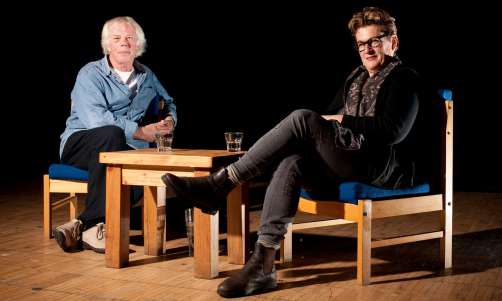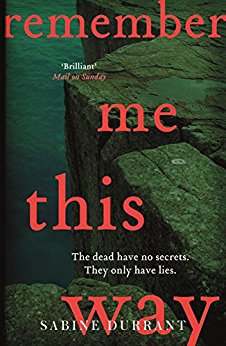Review: Beck by Mal Peet and Meg Rosoff
By Lesley Smith
Beck is a picaresque coming-of-age novel set in the first half of the twentieth century. The central character is a mixed-race orphan who suffers from physical, sexual, emotional and racial abuse, but eventually finds his place in the world.

Cover via Walker Books
Prejudice influences his very conception, as his mother meets his father when he is drinking beer in a street in Liverpool. A black sailor, he has been refused entry to the pub. After his family all die in a flu epidemic, Beck endures three years of harsh treatment in an orphanage. He is then shipped to Montreal to lodge temporarily in a home run by Catholic priests and learns to nurture plants in the priests’ vegetable garden. This learning serves him well in later years, but the abiding memory of this time, and one which comes back to haunt him again and again, warping his attitude towards any kind of loving relationship, is the appalling physical and sexual abuse he suffers from the priests.
Sent to work on a farm, Beck is despised, half-starved and made to sleep in a barn because his skin is black. He runs away, but has a long way to travel before he finds a place where he can be properly accepted. The plot takes us on a considerable journey through Beck’s formative years and across Canada, although sometimes whole years are left out of the story and the reader is left wondering how Beck managed to survive during these periods. A pivotal moment is his meeting with an older woman called Grace. She is also of mixed race, but she has created a role for herself within the indigenous Blackfoot tribe who are themselves viewed as outcasts by society as a whole.
The novel teems with memorable characters, the most likable (ironically) being a couple of criminals, Bone and Irma, with whom Beck has his happiest times, helping with their bootlegging business. Their support, sense of humour, and the care they take of Beck provide a welcome respite from the bleakness of much of the rest of the story. I felt, though, that Beck himself as a character is rather thinly drawn. For the most part, he is a passive victim; he reacts to events rather than taking positive decisions and, if he is saved, it is by other people’s efforts rather than his own. It is Bone who rescues him from freezing to death and an anonymous lorry driver who carries him, sick with fever, back to Grace. While his helplessness serves to expose the central themes of the novel, it perhaps makes it harder for the reader to fully empathise with him.
The writing is skilful and often evocatively poetic, emphasising how the whole world seems to be against Beck – there is “a frown of cloud”, a “fat black kettle pouted steam” and fruit trees are “crucified” against a wall. Dialogue is often lively and convincing, especially during the section of the novel where Beck is living with Bone and Irma. Their openness contrasts effectively with Beck’s reluctance to speak, a reluctance which stems from his early experience of life and which inevitably creates barriers between him and other characters.
Mal Peet had drafted Beck and even written the last scene when he realised that he would not live long enough to complete it. In an interview in The Guardian, Meg Rosoff explains how she offered to finish the book for him, “not stopping to ask what it was about.” Given the manuscript, she discovered that the plot was laid out but there was editorial work to be done. Extra dialogue was needed along with character development and “shifting the arc of the book so that it peaked earlier.” Rosoff “imagined that finishing Mal’s book would be like loving a dear friend’s child – a joyous adoption, no genetic link necessary”, and she did not attempt to copy his style, but “trusted that some deep connection would carry the prose.” The two writers had similar interests and values at heart. Although their writing styles have usually been different, the reader would be hard put to identify which writer wrote any particular passage as there is consistency in ideology and feeling.

Mal Peet and Meg Rosoff (photograph by Steven Haywood, via The Guardian)
The historical detail is enlightening to readers unfamiliar with what life was like in Canada during the Depression, where you could make a good living trading in illegal alcohol and where it was perfectly acceptable for a roadhouse to display a sign which read “No coloured – no women – no dogs”.
The “happily ever after” way the story ends suggests that the novel should have a place in the children’s section of the library, but the scene of sexual abuse suggests otherwise. While the incident is crucial in forming Beck’s attitudes and influencing his difficulties with relationships, many will think this scene is just too gruesomely detailed for young readers. The issue, while crucial to plot, characterisation and theme, could have been handled with more subtlety. The Carnegie shadowing groups in schools consist mainly of younger teenagers and many librarians, as comments on the shadowing site demonstrate, have been reluctant to inflict the full horror of Beck’s experience on their readers.
But such abuse does, sadly, still happen, and perhaps children should know about it. And the novel does show that it is possible to survive terrible experiences, and that if you allow others to reach out to you, you can hope for happiness in the long run.
There is nearly always one book on the Carnegie shortlist which prompts us to ask “Is this really for children?” and Beck is definitely the one this year.
 The Roehampton Readers participated in the CILIP Carnegie & Kate Greenaway Children’s Book Awards as a shadowing group. Meeting at the University of Roehampton to discuss the shortlists, their reviews were then posted to the shadowing site itself. We are sharing a selection of the reviews with you as part of the ongoing activity here at NCRCL. The Roehampton Readers group is coordinated by NCRCL MA students Judy Digby and Nicki Oakes-Monger.
The Roehampton Readers participated in the CILIP Carnegie & Kate Greenaway Children’s Book Awards as a shadowing group. Meeting at the University of Roehampton to discuss the shortlists, their reviews were then posted to the shadowing site itself. We are sharing a selection of the reviews with you as part of the ongoing activity here at NCRCL. The Roehampton Readers group is coordinated by NCRCL MA students Judy Digby and Nicki Oakes-Monger.





